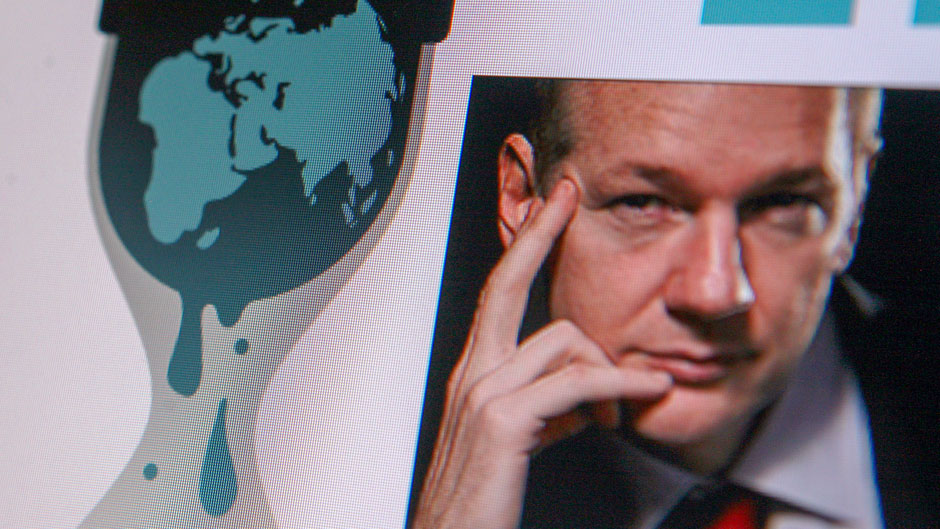On May 23, 2019, the U.S. Department of Justice announced that Julian Assange, founder of WikiLeaks, had been indicted on 18 counts of violation of the Espionage Act for his role in obtaining and publicly disclosing secret military and diplomatic documents provided by Chelsea Manning in 2010.
This is a first.
Although prior administrations (including the Roosevelt, Bush, and Obama administrations) considered prosecuting journalists over national security reporting under the Espionage Act, they have always stepped back from that brink because of concerns about threats to the press and a constitutional conflict.
This indictment raises significant questions about journalistic freedom and has greatly alarmed the press. The New York Times national security reporter Charlie Savage recently warned that it “could open the door to criminalizing activities that are crucial to American investigative journalists who write about national security matters.” There is no exemption for journalists or journalism in the Espionage Act. The indictment is notable both because it seems to adopt an expansive view of soliciting classified materials under the Espionage Act, and because it would criminalize publication itself.
Since the New York Times’ victory in the Pentagon Paperscase, the press has felt protected in publishing national security materials. BecausePentagon Papersaddressed only prior restraints on publication, however, its protection of the press does not preclude post-publication criminal punishment. In United States v. Rosen, a district court rejected a First Amendment challenge to the prosecution of two AIPAC employees who forwarded leaked information to journalists. As for newsgathering by urging sources to leak information, judicial protection for newsgathering has traditionally been constitutionally protected even less than publication.
Julian Assange is broadly unpopular and therefore could be an ideal cat’s paw for the Trump administration to target the press. While there is a debate about whether Assange should even be considered a journalist, indicting him for activities that are by now routine in national security investigative reporting (such as secure drop boxes for anonymous sources’ missives and documents) sends a warning signal to investigative journalists and news organizations. The assertion by John Demers, head of the Justice Department’s National Security Division, that Assange is “no journalist” and that the government “narrowly” seeks to prohibit publication that clearly and knowingly puts people’s lives at risk provide cold comfort to the press. If the executive branch is to decide who is a journalist and what counts as real journalism, the constitutional role of the press as watchdog has already been fundamentally compromised. At a minimum, news organizations’ risk calculus shifted the moment the latest Assange indictment was announced—a classic example of the chilling effect that speech and press protections are designed to prevent. This is particularly true in light of the Trump administration’s constant criticism and delegitimisation of the press as the “enemy of the American people” and the government’s expansive classification systems.
We have likely reached this pass because of a volatile combination of the instantaneous and amplifying impact of technology, the government’s current approach to information flow and the growth in government secrecy, shifts in the media ecosystem itself (including global competition), and an Executive unafraid to attack the press for political advantage. The aggressive Assange indictment is likely an effort by the government to push back against both the growth in massive national security leaks and changing journalistic norms that have led even reputable news outlets to publish secrets they would have previously warehoused.
 Assange will not stand trial in the U.S. unless Britain agrees to extradite him, and this may not be easy. If he does and is convicted, the case will likely end at the Supreme Court—which is unlikely to use the occasion to adopt complete immunity for the press, broadly conceived. Either way, then, the Assange indictment bodes ill for the American press.
Assange will not stand trial in the U.S. unless Britain agrees to extradite him, and this may not be easy. If he does and is convicted, the case will likely end at the Supreme Court—which is unlikely to use the occasion to adopt complete immunity for the press, broadly conceived. Either way, then, the Assange indictment bodes ill for the American press.
Lili Levi is a professor of law at the University of Miami’s School of Law. Her scholarship focuses primarily on communications and media law. Levi, who earned a J.D., cum laude, from Harvard Law School, is a member of the American Law Institute.

